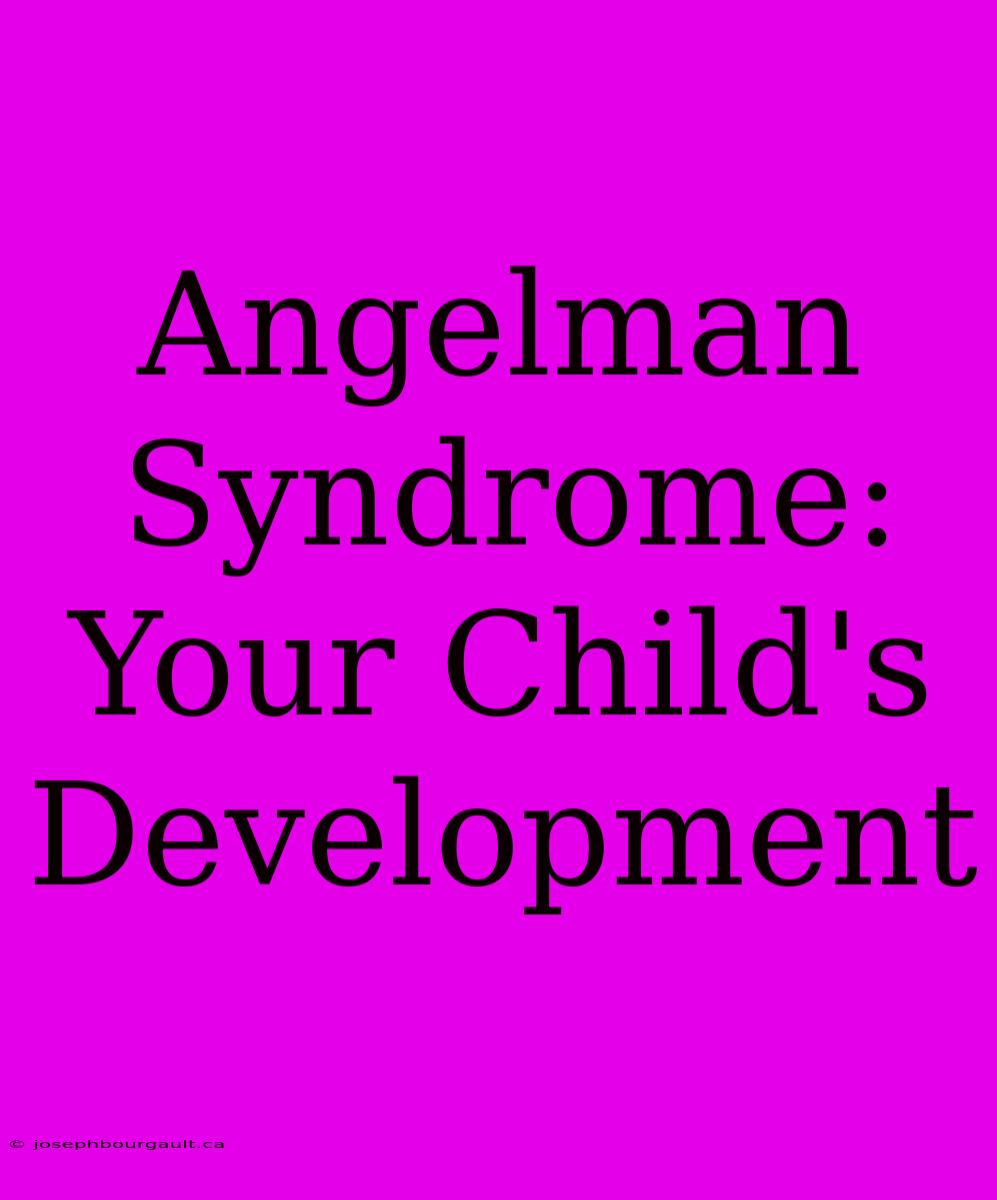Angelman Syndrome: Understanding Your Child's Development
Angelman Syndrome (AS) is a rare genetic disorder that affects the nervous system. It's characterized by a range of developmental delays and disabilities that can impact a child's physical, cognitive, and behavioral development. While there's no cure for AS, early intervention and ongoing support can make a significant difference in the quality of life for children with the condition.
What are the key characteristics of Angelman Syndrome?
Children with AS often exhibit a unique set of characteristics, including:
- Developmental Delays: Children with AS typically have significant delays in motor skills, speech and language development, and cognitive abilities. They may learn to walk later than their peers, struggle with verbal communication, and have difficulty with problem-solving skills.
- Characteristic Facial Features: Many children with AS share a distinct facial appearance with a wide mouth, a prominent chin, and widely spaced eyes.
- Smiling and Happy Disposition: A hallmark of AS is a happy, often excessively cheerful disposition, along with frequent laughter and smiling.
- Movement and Balance Challenges: Children with AS often have problems with balance and coordination, leading to clumsy movements and difficulty with fine motor skills.
- Sleep Disturbances: Many children with AS experience difficulty sleeping through the night or have unusual sleep patterns.
- Seizures: Epilepsy is common in AS, with about 80% of individuals experiencing seizures.
- Intellectual Disability: While cognitive abilities vary, most children with AS have intellectual disabilities ranging from mild to profound.
- Hyperactivity and Attention Issues: Children with AS may display hyperactivity, impulsivity, and difficulty focusing.
Understanding Your Child's Individual Needs
While these characteristics are common in AS, every child is unique. The severity of the symptoms and the specific areas of development that are most affected can vary significantly. It's crucial to have a thorough evaluation by a qualified medical professional to understand your child's individual needs and create a tailored plan for their development.
Supporting Your Child's Development
Early intervention and ongoing support are critical for children with AS. This may include:
- Physical Therapy: To help improve gross motor skills, balance, and coordination.
- Occupational Therapy: To address fine motor skills, self-care activities, and sensory processing.
- Speech Therapy: To enhance communication skills, including verbal and non-verbal communication.
- Special Education: To provide a structured and supportive learning environment tailored to their individual needs.
- Behavioral Therapy: To manage challenging behaviors and help them develop appropriate social skills.
- Medication: To manage seizures and other health issues.
Resources and Support
Living with AS can present challenges, but it's important to remember that there are many resources available to help families.
- Angelman Syndrome Foundation: Provides information, support, and resources for families affected by AS.
- National Organization for Rare Disorders (NORD): Offers information and support for individuals with rare diseases and their families.
- Local support groups: Connecting with other families facing similar challenges can provide invaluable support and shared experiences.
A Positive Outlook
While AS presents unique challenges, it's essential to focus on the strengths and abilities of each child. With early intervention, supportive care, and ongoing therapies, children with AS can achieve significant milestones and live fulfilling lives. Remember, every child has the potential to thrive, and with the right support, they can reach their full potential.

